Francesco De Toni
The BigScience ROOTS Corpus: A 1.6TB Composite Multilingual Dataset
Mar 07, 2023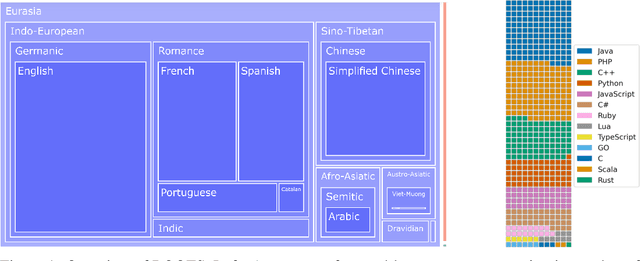



Abstract:As language models grow ever larger, the need for large-scale high-quality text datasets has never been more pressing, especially in multilingual settings. The BigScience workshop, a 1-year international and multidisciplinary initiative, was formed with the goal of researching and training large language models as a values-driven undertaking, putting issues of ethics, harm, and governance in the foreground. This paper documents the data creation and curation efforts undertaken by BigScience to assemble the Responsible Open-science Open-collaboration Text Sources (ROOTS) corpus, a 1.6TB dataset spanning 59 languages that was used to train the 176-billion-parameter BigScience Large Open-science Open-access Multilingual (BLOOM) language model. We further release a large initial subset of the corpus and analyses thereof, and hope to empower large-scale monolingual and multilingual modeling projects with both the data and the processing tools, as well as stimulate research around this large multilingual corpus.
SantaCoder: don't reach for the stars!
Jan 09, 2023



Abstract:The BigCode project is an open-scientific collaboration working on the responsible development of large language models for code. This tech report describes the progress of the collaboration until December 2022, outlining the current state of the Personally Identifiable Information (PII) redaction pipeline, the experiments conducted to de-risk the model architecture, and the experiments investigating better preprocessing methods for the training data. We train 1.1B parameter models on the Java, JavaScript, and Python subsets of The Stack and evaluate them on the MultiPL-E text-to-code benchmark. We find that more aggressive filtering of near-duplicates can further boost performance and, surprisingly, that selecting files from repositories with 5+ GitHub stars deteriorates performance significantly. Our best model outperforms previous open-source multilingual code generation models (InCoder-6.7B and CodeGen-Multi-2.7B) in both left-to-right generation and infilling on the Java, JavaScript, and Python portions of MultiPL-E, despite being a substantially smaller model. All models are released under an OpenRAIL license at https://hf.co/bigcode.
BLOOM: A 176B-Parameter Open-Access Multilingual Language Model
Nov 09, 2022Abstract:Large language models (LLMs) have been shown to be able to perform new tasks based on a few demonstrations or natural language instructions. While these capabilities have led to widespread adoption, most LLMs are developed by resource-rich organizations and are frequently kept from the public. As a step towards democratizing this powerful technology, we present BLOOM, a 176B-parameter open-access language model designed and built thanks to a collaboration of hundreds of researchers. BLOOM is a decoder-only Transformer language model that was trained on the ROOTS corpus, a dataset comprising hundreds of sources in 46 natural and 13 programming languages (59 in total). We find that BLOOM achieves competitive performance on a wide variety of benchmarks, with stronger results after undergoing multitask prompted finetuning. To facilitate future research and applications using LLMs, we publicly release our models and code under the Responsible AI License.
Entities, Dates, and Languages: Zero-Shot on Historical Texts with T0
Apr 11, 2022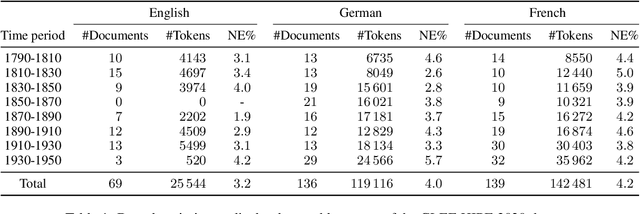



Abstract:In this work, we explore whether the recently demonstrated zero-shot abilities of the T0 model extend to Named Entity Recognition for out-of-distribution languages and time periods. Using a historical newspaper corpus in 3 languages as test-bed, we use prompts to extract possible named entities. Our results show that a naive approach for prompt-based zero-shot multilingual Named Entity Recognition is error-prone, but highlights the potential of such an approach for historical languages lacking labeled datasets. Moreover, we also find that T0-like models can be probed to predict the publication date and language of a document, which could be very relevant for the study of historical texts.
Documenting Geographically and Contextually Diverse Data Sources: The BigScience Catalogue of Language Data and Resources
Jan 25, 2022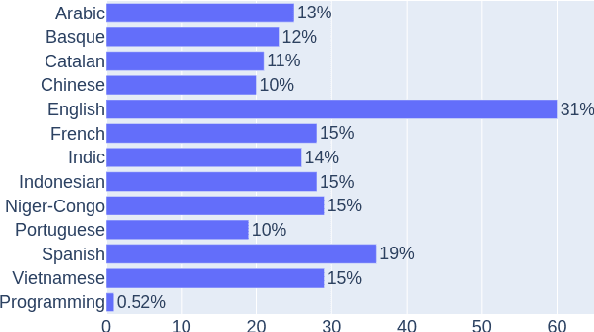
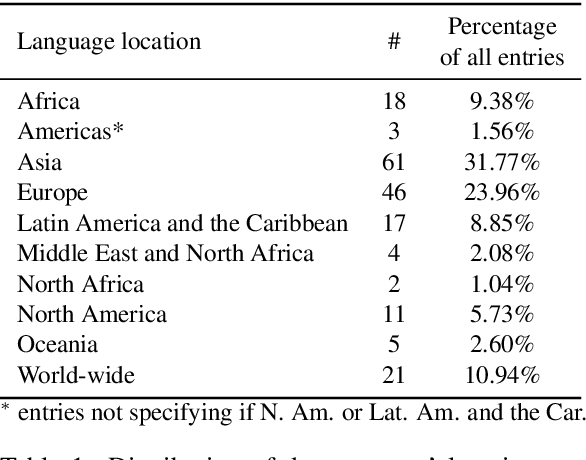
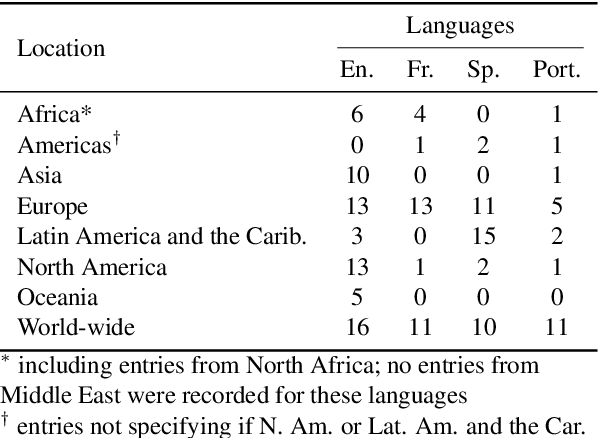
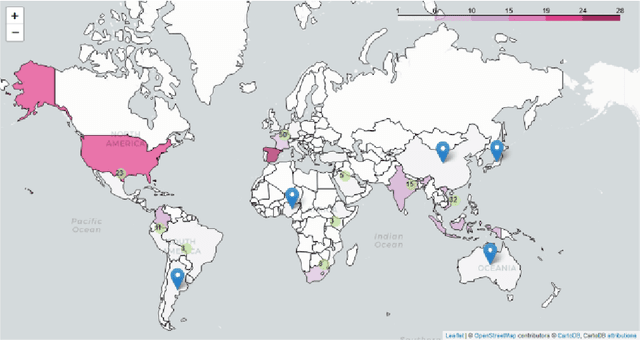
Abstract:In recent years, large-scale data collection efforts have prioritized the amount of data collected in order to improve the modeling capabilities of large language models. This prioritization, however, has resulted in concerns with respect to the rights of data subjects represented in data collections, particularly when considering the difficulty in interrogating these collections due to insufficient documentation and tools for analysis. Mindful of these pitfalls, we present our methodology for a documentation-first, human-centered data collection project as part of the BigScience initiative. We identified a geographically diverse set of target language groups (Arabic, Basque, Chinese, Catalan, English, French, Indic languages, Indonesian, Niger-Congo languages, Portuguese, Spanish, and Vietnamese, as well as programming languages) for which to collect metadata on potential data sources. To structure this effort, we developed our online catalogue as a supporting tool for gathering metadata through organized public hackathons. We present our development process; analyses of the resulting resource metadata, including distributions over languages, regions, and resource types; and our lessons learned in this endeavor.
 Add to Chrome
Add to Chrome Add to Firefox
Add to Firefox Add to Edge
Add to Edge